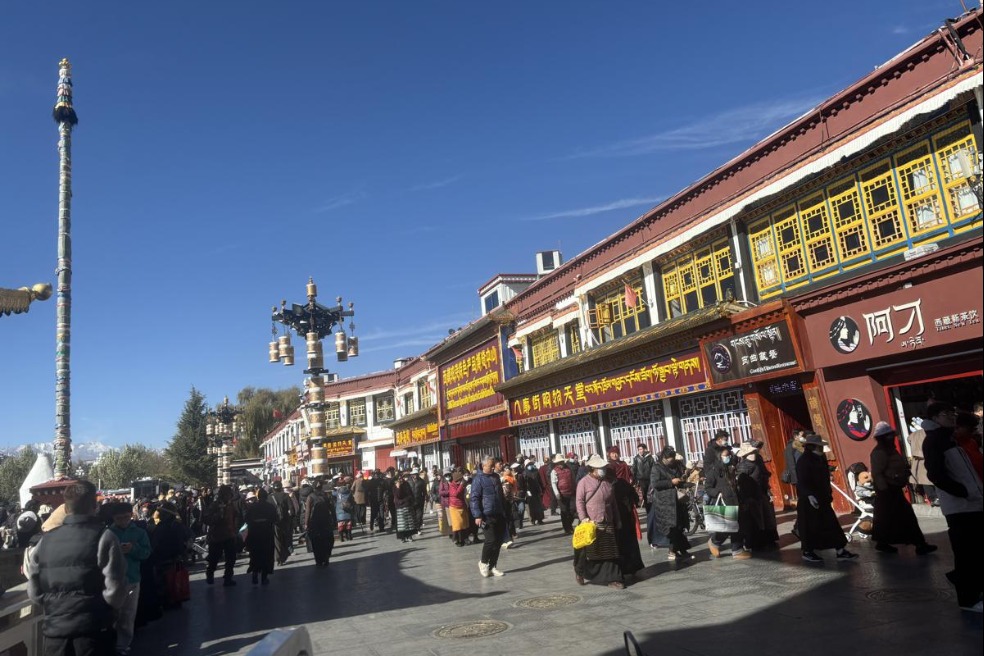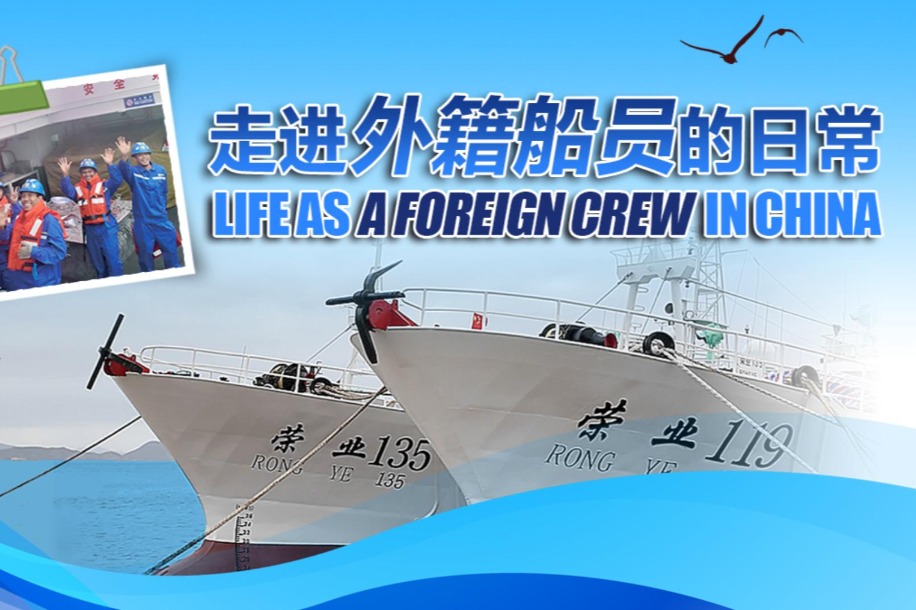IN TUNE with THE TIMES
Musicians in Taiwan go back to their roots for a new generation of fans, Xing Wen reports.

In Woody Allen's Midnight in Paris, Gil, a literature enthusiast, is transported to the 1920s, a golden age for writers and artists. He embarks on a pilgrimage to Le Polidor, a Parisian restaurant frequented by literary giants like Ernest Hemingway and James Joyce.
If a pop music lover were in search of a comparable experience in Taiwan, they would look no further than the cafe Columbia in Taipei.
The cafe was a gathering place for cultured youths and music enthusiasts in the 1970s, including the pioneers of Taiwan's pop music scene.
Among them was a member of the Puyuma ethnic group, singer-songwriter Hu De-fu, better known as Ara Kimbo.
In 1970, Hu, then a 20-year-old university student, faced a difficult situation as his father was diagnosed with esophageal cancer, and medical expenses were a burden on the family.
To help raise funds, he took on several part-time jobs. He wrote foreign trade letters for a textile factory during the day, and at night he worked as a waiter in a restaurant owned by his friend.
Later, he also started working as a resident singer at the cafe Columbia.
"I used to only perform English songs until, one day, a young man came to me and asked, 'Could you sing a song from your own ethnic culture for me?'," recalls Hu.
The young man was Li Shuang-ze, a legendary figure who wore many hats, including those of a painter, music producer, folk musician and writer.
"As I finished singing, Li stood up and led the applause for me, and the audience burst into cheers," says Hu. "I had never had such an experience before."
After that, Hu was encouraged by Li to write his own songs. He soon made friends with more musicians in the cafe, including singer-songwriter Hsien Yang and folk singer Yang Tsu-chun.
Back in the 1960s and early 1970s, young people in Taiwan were captivated by Western music and idolized singers such as Bob Dylan, Joan Baez and Paul Simon.
"Due to our inclination towards Western music back then, the Chinese approach to conveying emotions through literature, poetry, songs and music was somewhat limited," says Yang.
"We no longer focused on singing songs in English, but instead incorporated Mandarin, the Minnan dialect (spoken in southern Fujian province and Taiwan), the Hakka dialect and even the languages of the aboriginal people, to make our voices heard," she says.
The efforts of the young musicians in creating songs that were highly connected to the cultural identity and experience of local people ignited a surge of original music composition in Taiwan, which had a significant and far-reaching influence in Mandarin-speaking communities.
This cultural movement is now widely recognized as the "folk music movement" in Taiwan, which laid the foundation of the future development of pop music on the island.
Sense of nostalgia
Recently, on music show Infinity and Beyond, which is aired on Mango TV, Hu has resurrected the classic tunes from that bygone era.
Seated before a white piano on shore of the Riyue Tan, also known as Sun Moon Lake, in the island's Nantou county, the 72-year-old strikes the piano keys, unleashing the captivating melody of the song Olive Tree. The song, featuring lyrics by writer Sanmao, the pen name of Echo Chen Ping, and music composed by Li Tai-hsiang, was first performed by Chyi Yu in 1979.
It's widely recognized as a hallmark of the aforementioned "folk music movement", a period in which many writers, artists and musicians collaborated to create pop music.
The music show chronicles the progression of pop music in Taiwan by inviting singers to perform classic tunes from various stages of its development. Hu personally witnessed the creation of Olive Tree.
During the process, Li Tai-hsiang played and sang while repeatedly reading Sanmao's lyrics and simultaneously composing the melody while making changes to the score. Hu assisted him by sharpening his pencil and serving tea. When Li Taihsiang was halfway through writing the song, he asked Hu to sing it out loud.
"Even today, when I hear this song, it evokes a flood of memories from that era, with numerous faces and familiar scenes flashing in my mind," Hu says, explaining why he chose to perform that song.
In the early 1980s, the establishment of the two record companies, Rock Records and UFO Records marked the beginning of Taiwan's pop music industry. Tayu Lo, as a representative singer-songwriter of this period, integrated a strong realist style into his music, fusing Western rock spirit with Chinese culture to offer listeners a refreshing perspective on social issues through music.
In the 1990s, the Taiwan pop music scene entered a prosperous golden age, during which the local music industry became more mature and countless high-quality music works and new artists emerged. Many singers from Hong Kong and Southeast Asia were drawn to the island to pursue their careers.
Following the turn of the millennium, the immensely talented singer-songwriter Jay Chou emerged on the scene, showcasing his unique blend of cultural influences, while pushing musical boundaries through the incorporation of a diverse range of genres, including classical, folk, hip-hop, blues, rap and rock. Chou's debut ushered in a new era of artistic expression and creative diversity within the Chinese pop industry.
Since 2010, the local music scene has entered a phase of advocating individualistic expression, with indie music becoming a trendy music genre.
Bringing people together
On Infinite and Beyond, singers from different age groups who are beneficiaries of cross-Strait musical exchanges, including Jeff Chang, 56, Na Ying, 56, Aska Yang, 45, Angela Zhang, 41 and Chen Li-nong, 22, have been invited to collaborate in performing classic songs and sharing their personal stories exploring Chinese pop music.
"The show offers a chance for us to connect with fellow artists, exchange ideas and opinions about music, and share our aesthetic preferences," says Chang.
As cultural exchanges across the Taiwan Strait became more frequent in the 1990s, Taiwan record companies sought to expand their market reach by venturing into the Chinese mainland.
Taking advantage of this trend, Chang, then a promising young singer, traveled to the Chinese mainland in pursuit of more opportunities.
In 1998, he got to perform at the Spring Festival Gala, staged annually by China Central Television, and soon became a household name.
"Besides providing entertainment and emotional release, music plays a vital role as a conduit for transmitting ideas," he says. "It also serves as a shared language that helps people connect through common experiences and interests."
Chang mentions that, nowadays, young people from both sides of the Strait can fully understand the buzzwords and online memes used by each other.
"By promoting the exchange of pop culture, I aspire to bridge the gap between people and foster a greater sense of unity," Chang says.




Today's Top News
- Judicial reform critical for modernizing governance
- Effective use of investment emphasized
- China's shuttle diplomacy strives to reach ceasefire
- Nanjing Museum's handling of donated art, relics being probed
- Key role of central SOEs emphasized
- New travel program hailed as 'milestone'






























